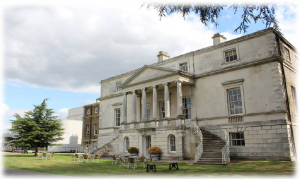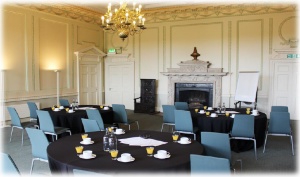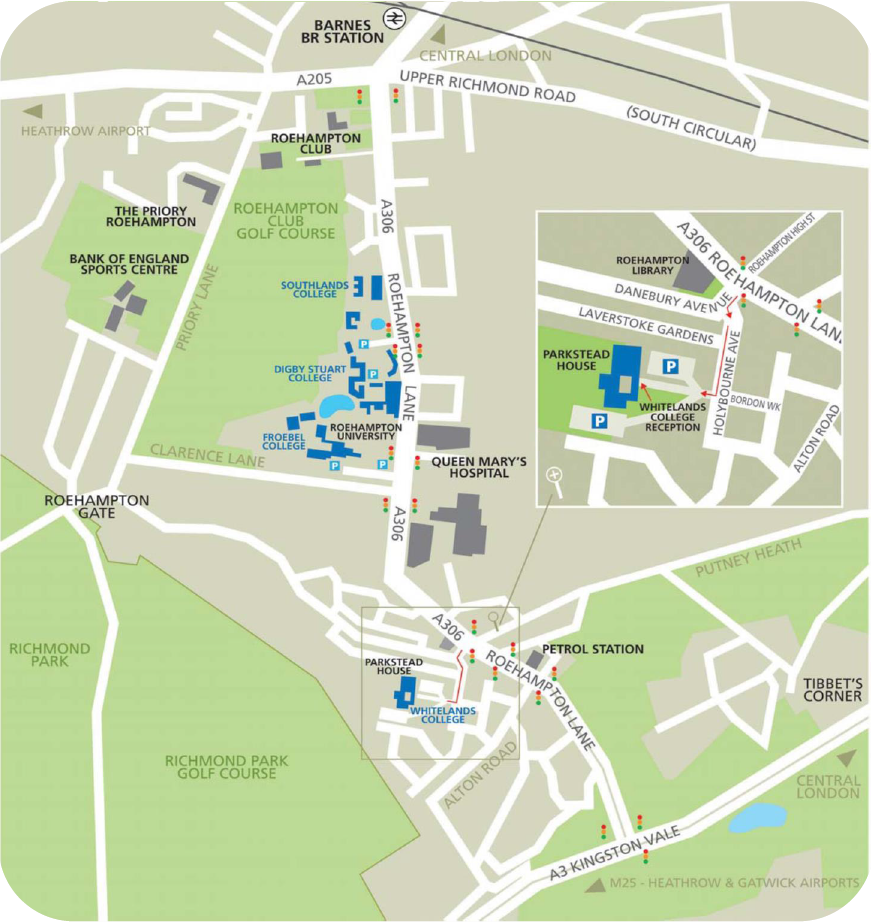The Systemic Health of Organisations –
Towards Sensible Leadership
June 24-27, 2016, 9:00-18:00
Chambers Suites, Parkstead House, Roehampton, London, SW15 4JD
This four day collaborative event will be focused on development, learning and sharing of systemic organisational practice, with inputs from key note speakers and participants.
Focusing on ‘The Systemic Health of Organisations – Towards Sensible Leadership’ we will generate multiple insights, practical resources and sense-abilities for how as leaders, consultants, clinicians, practitioners we can orientate ourselves in organisations and contribute to organisational health. We will also engage with the questions – what organisational health means to us, how we notice it, and what ideas, agency and ethics are guiding us in our practice towards the systemic health of organisations.
Christine and Martin will facilitate the Systemic Organisational Practice Dialogues, from Friday, June 24 to Monday, June 27. The venue for these Dialogues will be Parkstead House, University of Roehampton, London.
- about practice dialogues
- the programme
- your invitation to contribute
- speakers
- conference venue and directions
- accomodation
- registration and fee
About practice dialogues
With the conference format of practice dialogues we are aiming to engage practitioners such as organisation development consultants, executive coaches, organisational leaders, managers, clinicians, social workers, researchers, religious and community leaders, who are interested in the application of systemic and social constructionist practice in relation to organisational emergence. Participants are invited to take an interest in learning from each other’s practice as well as from planned workshops.
The format of this four day developmental journey is one of collaborating, co-creating, learning and exchange on multiple levels. Participants will learn in relation to individual aims, plenary discussions and workshops, but also from groups of practitioners with related aims and interests to process and develop learning. These practitioner groups will be invited to share and exchange their work throughout the conference.
The Systemic Organisational Practice Dialogues are a platform to develop your relationships within the community of systemic practitioners and with systemic thinking and practice concepts, and to make concepts and experiences relevant to your practice, your team or your organisation. It is also a place to share your practice with others and to talk about what you are doing, what has been successful and also what you are hoping to develop.
The programme
 The programme includes coffee, tea, pastries and a gourmet sandwich lunch served with crisps and fresh fruit and a complimentary conference supper party at Christine Oliver’s house on Sunday evening. The conference dinner on day 1 at a nearby pub is optional and not included with the course fee.
The programme includes coffee, tea, pastries and a gourmet sandwich lunch served with crisps and fresh fruit and a complimentary conference supper party at Christine Oliver’s house on Sunday evening. The conference dinner on day 1 at a nearby pub is optional and not included with the course fee.
Friday, June 24, 2016 – 9:00 – 18:00
- Introduction, aims, formation of groups
The conference starts with an orientation – to each other, to our individual and collective aims, to how we wish to relate and achieve specific and emergent outcomes. This includes the formation of small groups of participants who will provide stability for learning, reflecting and supporting its members over the four day conference.

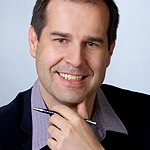 The systemic health of organisations: leading and sustaining patterns of coherence.
The systemic health of organisations: leading and sustaining patterns of coherence.
Christine Oliver and Martin Miksits
As systemic leaders and consultants, how can we effectively respond to difficulties or purposefully invite conditions for organisational success? In this workshop we will offer frames for leadership orientation and action, giving meaning to and intervening in organisational systemic health.
We will attend to organisational dilemmas and difficulties building on and reframing some concepts in mental health, as systemic phenomena – not with a view to diagnosing organisations, but with a view to the collective development of a reflexive response to such difficulties, considering strategies for organisational development for us as leaders and consultants.
We will observe how organisational difficulties can be related to incoherencies such as fragmentations, ethical and moral dilemmas, broken promises, unacknowledged commitments, challenges to trust, belonging and satisfaction. These are often markers for breakdown of or significant incisions in communication processes. Indeed organisational practices and rules often constrain communication so that some experiences and voices become privileged and other voices and experiences excluded. In response we will introduce a framework of a ‘good enough’ coherence related to proactive systemic leadership and consultancy for a robust organisational systemic health.
- Practitioner groups working on participant aims and interests
Working in interest groups and reflecting on emergent learning and interests.
- Plenary dialogue on learning from inputs
All participants / groups come together for sharing and reflecting on day 1.
- Conference dinner at pub (optional)
Saturday, June 25, 2016 – 9:00 – 18:00
 Systemic Leadership and Reflexivity: Resisting Malign Positioning in Organisations
Systemic Leadership and Reflexivity: Resisting Malign Positioning in Organisations
Karen Partridge
Over the past forty years the pace of organisational change in the National Health Service (NHS) has increased exponentially, with government reforms resulting in mergers, multiple reorganisations, cuts to vital services and ever decreasing budgets. At the same time the banking crisis and historical sexual abuse scandals have challenged authority and traditional sources of power, plunging society and its institutions into a continuous process of transformation. As the pace of change in organisations increases and budgets are stretched, so professional roles and practices are increasingly under scrutiny and become more and more tightly defined.
One of the challenges for a systemic leader in these difficult times is to resist malign positioning and to enhance opportunities for more benign and creative ways of being. I will explore leadership in complex systems and the way in which positioning theory and the Fifth Province approach can be applied creatively to organisational dilemmas. I will discuss the use of a “positioning compass” to aid reflexivity and create “ways to go on” in order to work towards inventing and developing institutions which are learning systems, capable of bringing about their own continuous transformation.
- The systemic health of organisations – participant inputs
Participants offer short presentations and workshops in relation to the topic of emergence of the ethical and effective organisation- you are welcome to register your interest to contribute in this way!
 System Sight and its implications for creating partnership across the whole organisation – experiences from Barry Oshry’s Power and Systems organisational workshops
System Sight and its implications for creating partnership across the whole organisation – experiences from Barry Oshry’s Power and Systems organisational workshops
Martin Egan
How can we create the experience of a total organisation so each part of the system understand how other parts experience their positions by increasing partnership? Barry Oshry defines Partnership as: “A relationship in which we are jointly committed to the success of whatever endeavor, process or project we are engaged in”.
The session will highlight how the roles and positions we find ourselves in affect our experience. Usually we think much of our experiences of interactions within the systems we operate in are the result of personalities, attitudes and behavior and we overlook the contribution made by the system dynamics. In this workshop I will share insights and experiences of the contribution of these system dynamics and working with them to create partnership across the whole system.
 Viewing organizations systemically – how to see the movement?
Viewing organizations systemically – how to see the movement?
Risto Puutio
Still dominating modern paradigm views organization as substance, a stable thing, calling for planning and controlling. A systemic paradigm offers a more dynamic picture of an organization by viewing it as an infinite rather than a finite game, as process rather that a substance and as movement rather that a stable entity. In this practitioner input, I will share some of my recent inspirations of seeing organization as process. The session will also ask, how we as systemic practitioners can help leaders to observe their organizations as movement and as being in a state of continuous becoming.
- Practitioner groups working on participant aims and interests
There will be time in the morning and afternoon for practitioner groups to reflect on learnings and develop thinking in relation to participant aims and group purpose.
- Plenary dialogue on learning from inputs
All participants / groups come together for sharing and reflecting on day 2.
- No formal evening programme
Sunday, June 26, 2016 – 9:00 – 18:00
 Pivotal Leadership and the Co-Creation of Organizational Health
Pivotal Leadership and the Co-Creation of Organizational Health
J. Kevin Barge
The practice of leadership and consultancy is dynamic and emergent, always fitted to the unique evolving characteristics of unfolding situations. Leaders and consultants exercise a pivotal position in organizations as they serve as a catalyst for co-creating structures and practices that move organizations forward in ways that promote and sustain organizational health and success.
If leaders and consultants represent a pivot point for organizational development, what are the abilities and resources that they need to develop to enable them to work with the complexity of organizational systems to enable healthy patterns of practice? Moreover, what counts as “health” at particular moments within organizational life? In this keynote, we will explore the notion of pivotal leadership and investigate how pivotal leadership involves: (1) an ability to turn quickly from one conversation to another, to change course and direction rapidly from within the flow of activity while constantly moving and (2) an ability to be simultaneously at the center and the periphery of organizational activity. We will observe how leaders need to develop a new canon of leadership skills that focus on fostering collective inquiry with other organizational members involving co-missioning, co-designing, co-reflecting, and co-acting—skills that not only help articulate what counts as organizational health at particular moments, but that also help sustain and elaborate practices associated with the promotion of organizational health.
- The systemic health of organisations – participant inputs
Participants offer short presentations and workshops in relation to the topic of emergence of the ethical and effective organisation- you are welcome to register your interest to contribute in this way!
 Developing organisational health in a social work unit in Sweden
Developing organisational health in a social work unit in Sweden
Maria Brixemo
I will offer a consultant’s stories about systemic approach, methods, and techniques that were helpful in an assignment aimed at improving organisational health and also in developing awareness and stronger agreements around the co-creation of leadership and co-workers roles in relation to each other, and in bringing about best possible work for their clients.
During the assignment we used the participants’ stories about the past, present and future which opened up new positioning in conversations, built trust, and supported them in creating new stories about reality on different levels of context; culture, relational and identity.
 Saying ‘hello’ to risk; developing ‘benign invigilation’ in health and social care
Saying ‘hello’ to risk; developing ‘benign invigilation’ in health and social care
Percy Aggett
I will describe some organisational workshops that I organised with systemic colleagues in response to a number of homicides and suicides of the clients of some mental health teams in East London. Complementary to what might be called retrospective organisational responses to high risk events, these appreciative inquiry workshops were predicated on the idea that risk reduction is increased when individuals in teams are able to be responsive to one another in the moment and are able to co-ordinate spontaneously in the present.
- Practitioner groups working on participant aims and interests
There will be time in the morning and afternoon for practitioner groups to reflect on learnings and develop thinking in relation to participant aims and group purpose.
- Plenary dialogue on learning from inputs
All participants / groups come together for sharing and reflecting on day 3.
- Course supper party at Christine Oliver’s house (complimentary)
Monday, June 27, 2017 – 9:00 – 15:00
The systemic health of organisations – participant inputs
- The systemic health of organisations – participant inputs
Participants offer short presentations and workshops in relation to the topic of emergence of the ethical and effective organisation- you are welcome to register your interest to contribute in this way!
 “Troubles ahead: let’s face the music and dance”: a playful interactive workshop (playshop) about flexible and ethical positioning within organisations facing significant structural changes
“Troubles ahead: let’s face the music and dance”: a playful interactive workshop (playshop) about flexible and ethical positioning within organisations facing significant structural changes
Chiara Santin
The playshop will offer the opportunity to be playful and dance with some systemic ideas reflecting on dominant discourses about structural changes in public and private organisations. This co-created space will invite people to reflect on personal experiences of responding to organisational changes and default positions we may take in relational processes, which can become polarised and fixed.
Experimenting with flexible positioning may help to regain a sense of agency in order to feel empowered to develop systemic sensitivities and rekindle hope for reflexive, collaborative, and ethical practices. This can contribute to positive transformation of services.
- Practitioner groups – report out, presentations and performances
Sharing and integration of the process and outcome of group work. Groups are invited to present, perform, or otherwise share their learning in their own unique or creative ways.
- Conference reflections
In a final plenary session, participants are invited to share reflections and learnings on what has been created and how individual aims could be achieved or progressed, thus creating another level of integration and learning.
- Closing
Your invitation to contribute
Having joined the Systemic Organisational Practice Dialogues you will find yourself in a position of co-creating the conference and each other’s experience and position in it from day 1. Inviting collaboration in a community of practice we hope that dialogue and collective inquiry into the emergence of systemic organisational health will thrive on everybody’s contributions as much as on the resonance from inputs of key note speakers.
You are invited to take an active position in these dialogues and to make a brief contribution – be it on your practice, your research or the challenge you are facing in relation to systemic organisational health. We have planned for sessions of half an hour or an hour for these contributions including some time for reflections and dialogue. If you are interested in leading such an input please contact Christine Oliver and Martin Miksits at dialogues@systemicdevelopment.eu.
Speakers
 Percy Aggett is Associate Clinical Director and Psychological Therapies Lead for Tower Hamlets child and adolescent NHS mental health services, in the East End of London. A social worker and systemic therapist by training, he is interested in participative learning, systemic leadership practice and organisational development. “I am concerned to create safe, imaginative organisations. I am interested in the different ways in which people learn and how to create contexts in which people learn best. I am interested in developing dialogic approaches to team development and how mental health workers can be empowered to stay working with persistence in vulnerable communities.”
Percy Aggett is Associate Clinical Director and Psychological Therapies Lead for Tower Hamlets child and adolescent NHS mental health services, in the East End of London. A social worker and systemic therapist by training, he is interested in participative learning, systemic leadership practice and organisational development. “I am concerned to create safe, imaginative organisations. I am interested in the different ways in which people learn and how to create contexts in which people learn best. I am interested in developing dialogic approaches to team development and how mental health workers can be empowered to stay working with persistence in vulnerable communities.”

J. Kevin Barge (PhD) is a Professor of Communication at Texas A & M University. He is also a member of the planning team for the Aspen Conference, a community of engaged organizational communication scholars focused on developing practical theory and collaborative research that bridge academic-practitioner interests.
Kevin’s major research interests center on developing a social constructionist approach to leadership, articulating the connections between appreciative practice and organizational change, as well as exploring the relationship between discourse and public deliberation, specifically practices that facilitate communities working through polarized and polarizing issues. Other research interests include investigating the role of reflexivity in leadership and management practice, examining ways to develop effective academic-practitioner collaborations, and developing practical theory. Kevin’s research is inspired by interpretive and discursive research approaches and he is keenly interested in how collaborative research methods can be used to generate usable knowledge and forward movement in organizations and communities.
He has published articles on leadership, dialogue, and organizational change in The Academy of Management Review, Management Communication Quarterly, Human Relations, Communication Theory, Journal of Applied Communication Research, and Communication Monographs. Kevin has served on a number of national and international editorial boards for journals such as Management Communication Quarterly, Journal of Applied Communication Research, and Human Relations. He is a former editor of Communication Studies.
 Maria Brixemo (MSc) works with organisational and leadership development. She holds a Master degree in Organisational Studies and Systemic Leadership, University of Bedfordshire and Kensington Consultation Centre, 2007 and has studied Human Resources in Sweden.
Maria Brixemo (MSc) works with organisational and leadership development. She holds a Master degree in Organisational Studies and Systemic Leadership, University of Bedfordshire and Kensington Consultation Centre, 2007 and has studied Human Resources in Sweden.
Maria has worked for many years as an independent consultant, in the contexts of occupational health consultation, steel/manufacturing, pharmaceutrical industries; health and social care; the financial sector and church organisations. She is licensed to use The Human Element and Radical Collaboration, Will Schutz Associates and Myers Briggs Type Indicator.
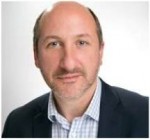 Martin Egan (PhD) is passionate about helping organisations to unlock the potential of their employees and examine their culture to increase productivity, engage their staff and improve profitability. He has a relational consulting style that enhances the work by building rapport and focusing on personal relationships. As a multidisciplinary professional, his approach combines commercial experience with psychotherapy and organisational consulting. He has held senior roles at leading global consultancies that specialise in developing leadership and corporate culture management to give their organisations a competitive advantage.
Martin Egan (PhD) is passionate about helping organisations to unlock the potential of their employees and examine their culture to increase productivity, engage their staff and improve profitability. He has a relational consulting style that enhances the work by building rapport and focusing on personal relationships. As a multidisciplinary professional, his approach combines commercial experience with psychotherapy and organisational consulting. He has held senior roles at leading global consultancies that specialise in developing leadership and corporate culture management to give their organisations a competitive advantage.
Originally a scientist – his PhD is in Analytical Chemistry – Martin gained an MA in Analytical Psychology and then trained in systemic and group psychology. As a consultant with broad international experience, Martin has a special interest in understanding the often unconscious dynamics that exist within organisations and how these influence the behaviour of individuals and groups and affect corporate culture. His approach is to increase our understanding of what drives and sustains us and to enhance our understanding of how we think, feel and act in situations. He is also qualified to work with individuals at deeper levels to address underlying issues that may prevent them from giving their best at work. Martin has been leading the development of an evidence-based culture measurement tool at a global culture-management organisation and has contributed to the literature on leadership coaching – Leadership Coaching: Working with Leaders to Develop Elite Performance (2010, Kogan, London).
 Karen Partridge (PhD) is a Consultant Clinical Psychologist and Systemic Psychotherapist currently working as Trust Head of Systemic Psychotherapy at the Tavistock and Portman NHS Trust and in private practice.
Karen Partridge (PhD) is a Consultant Clinical Psychologist and Systemic Psychotherapist currently working as Trust Head of Systemic Psychotherapy at the Tavistock and Portman NHS Trust and in private practice.
I started my career in learning disabilities and in adult mental health where I carried out my PhD research into organisational change in hospitals, in which I explored the effect of staff training and organisational interventions in long stay hospitals for people with learning disabilities from an ecological and systemic perspective. This led to an ongoing commitment to staff training, in which I remain passionate about finding ways to honour the individual and resist institutional practices.
I completed my systemic training at the KCC Foundation where I worked as a tutor for many years and latterly as Co-Director. I train and supervise health and social care professionals across a wide range of settings and client groups. I work with children, families, couples, work groups, organisations and in the community. I teach and supervise professionals and am interested in consultation and training in staff groups and organisations and in the interface between therapy, community and organisational interventions, action research and social justice. My interests include narrative approaches and social constructionism, discourses in training and supervision, reflexivity and positioning, art, music, Buddhism, mindfulness and the application of systemic ideas in organisational settings.

Risto Puutio (Ph.D, MSc in Systemic Leadership & Organization Studies) directs Metanoia Institute, a Finnish based organization dedicated to integrating organizational dynamics with systemic practices. Within Metanoia, he organizes f.ex. Social Dreaming seminars in Finland. In his daily practice, Risto helps leaders and health-care professionals to reflect their work and to develop it.
His recent book Consultation as Conversation (2015) co-authored with Dr. Virpi-Liisa Kykyri is the first research-based book on consultation practice published in Finland.
 Chiara Santin is a Systemic and Family Psychotherapist, Systemic Supervisor and Trainer working independently and running her own company i.e. Rainbow Family Therapy Services in East Sussex, UK since 2013.
Chiara Santin is a Systemic and Family Psychotherapist, Systemic Supervisor and Trainer working independently and running her own company i.e. Rainbow Family Therapy Services in East Sussex, UK since 2013.
I am passionate about bringing self-reflexivity into social care practices and reflecting on power issues in public and private organisational contexts. I worked in a statutory agency for 10 year developing a dual expertise in social care and systemic psychotherapy. I am currently part of a project to develop systemic supervision to transform social care services in Camden, London through the Tavistock. In the last 3 years I have been developing a specialist expertise in providing post adoption therapeutic support to adopted children and their families.
I have extensive experience in group-leading in community youth work, social care, adult learning and professional organizations. I have been a lecturer on the foundation course at the Institute of Family Therapy, and the Tavistock in London for 5 years. I am now a panelist of CRED, the accreditation body for the Association of Family Therapy for systemic courses in UK. I am a national Rep for the Sussex Association of Family Therapy. I have been a systemic consultant to children’s homes in East Sussex for 4 years providing basic systemic training, agency consultations and individual supervision. I also lead personal and professional development groups for multi-agency professionals, I provide supervision and training in systemic theories and skills.
I am interested in therapeutic writing and have published several papers on Context, the national Family Therapy magazine, and a recent paper in the Journal of Human Systems and have presented at several national and European conferences.

Christine Oliver (PhD) co-leads the MSc in Systemic Leadership and Organisational Development with Martin Miksits for the University of Bedfordshire. She also works as Consultant Family Therapist and Group Analyst for East London Foundation Trust and is an independent psychotherapist and organisational consultant working to facilitate individual and organisational development.
Christine provides systemic leadership and management training and consultancy for public, private and not for profit organisations locally and globally. A primary interest is in consultancy methodologies for structuring dialogue to engender reflexive practice in the workplace. She has contributed to the development of systemic theory and practice through many published papers and through her most recent books: Reflexive Inquiry, published by Karnac, London (2005) and Complexity, Relationships and Strange Loops, published by the MHA Institute, Canada (2003).
 Martin Miksits (DProf) works as coach and consultant with leaders, teams and organisations. He also works as systemic therapist in private practice. His consulting experience is in facilitating organisational transitions, development and learning, for instance in relation to organisational practice, process, performance, strategy or culture, using systemic, appreciative and collaborative approaches.
Martin Miksits (DProf) works as coach and consultant with leaders, teams and organisations. He also works as systemic therapist in private practice. His consulting experience is in facilitating organisational transitions, development and learning, for instance in relation to organisational practice, process, performance, strategy or culture, using systemic, appreciative and collaborative approaches.
Martin draws on twenty years of industry experience working mostly in international management positions. These include assignments as a global programme manager leading major strategic change initiatives in a global company, business development and sales management in North Latin America, management of merger and acquisition projects in the Netherlands and in Belgium, cultural change and process change in Austria and in the UK.
More speakers to be announced…
Conference Venue
Chambers Suites, Parkstead House, Roehampton, London, SW15 4JD
Parkstead House is situated in Whitelands College of the University of Roehampton, just a five minute bus ride from Barnes mainline station and minutes from the A3. There are also regular bus services from Putney, Wimbledon and Hammersmith which all have underground stations direct to central London. This location is within easy reach of Heathrow airport and has a number of car parking spaces available on site. For directions please refer to the last page of this flyer.
Directions
Location Map – Whitelands College, Parkstead House
Train
The nearest station is Barnes, from which it is about 25 minutes walk to Whitelands Campus, or take buses 72 or 265, which stop outside all campuses. Trains to Barnes run from Clapham Junction, London Waterloo, Staines and Windsor.
Tube
District/ Piccadilly/ Hammersmith & City lines to Hammersmith. From the tube station, go to bus stop K in the Lower Bus Station next to the shopping centre (see the map of Hammersmith Bus Station on the TfL website) and take bus 72 to all campuses.
District line to Putney Bridge. From outside the tube station, take bus 265 to all campuses.
Bus
Buses that stop nearby: 72, 265, 493, 170, 493. Travelling up Roehampton Lane, alight at the stop just before the junction with Danebury Avenue. Turn right down Danebury Avenue and then take the immediate left onto Holybourne Avenue. Whitelands is a minute’s walk on the right-hand side. If you are travelling from the direction of the A3 alight at the stop just after the junction with Danebury Avenue.
Accomodation
Accomodation available at Roehampton University Campus
Single and double rooms from £42 per night – only a few rooms available;
Shared or en-suite bath rooms; facilities include tea/coffee making facilities, fridge, microwave and toaster.
Please contact lucy.dollman@roehampton.ac.uk or Kristal.oakes@roehampton.ac.uk directly to reserve a room. It is sensible to do this as far in advance as possible to secure university accommodation.
Recommended local hotels and B&Bs
LODGE HOTEL 3 Star Hotel – Rooms from £99 per night 52-54 Upper Richmond Road, Putney London, SW15 2RN +44 (0)20 8874 1598 | res@thelodgehotellondon.com | www.thelodgehotellondon.com
KINGSTON LODGE HOTEL 4 Star Hotel - Rooms from £115.00 per night 94 Kingston Hill, Kingston-Upon-Thames Surrey, KT2 7NP +44 (0)20 8541 4481 | Kingstonlodge@brook-hotels.co.uk | www.brook-hotels.co.uk
RICHMOND HILL HOTEL 4 Star Hotel – Rooms from £119 per night Richmond Hill, Richmond-Upon-Thames Surrey, TW10 6RW +44 (0) 20 8940 2247 | info.richmond@kewgreen.co.uk | www.richmondhill-hotel.co.uk
PREMIER TRAVEL INN – HAMMERSMITH 3 Star Hotel– Rooms from £69 per night 255 King Street Hammersmith, London, W6 9LU +44 (0)871 527 8660 | www.premierinn.com/en/hotel/LONHAM
CANNIZARO HOUSE 4 Star Hotel - Rooms from £105 per night West side, Wimbledon Common, London SW19 4UE +44 (0)20 8879 1464 | info@cannizarohouse.com | www.cannizarohouse.com
RICHMOND GATE HOTEL 4 Star Hotel – Rooms from £139 per night Richmond Hill , Richmond-Upon-Thames , Surrey TW10 6RP +44 (0)844 855 9121 | richmondgate@foliohotels.co.uk | www.akkeronhotels.com
PREMIER TRAVEL INN - PUTNEY 3 Star Hotel– Rooms from £49 per night 3 Putney Bridge Approach Putney, London SW6 3JD +44 (0)871 527 8674 | www.premierinn.com/en/hotel/LONPUT
NOVOTEL HAMMERSMITH 4 Star Hotel – Rooms from £100 per night 1 Shortlands , Hammersmith London, W6 8DR +44 (0)207 660 0680 | H0737@accor.com | www.novotel.com
Registration and fee
The fee for the four day Systemic Organisational Practice Dialogues is 580 pounds. This includes coffee, tea, pastries and a gourmet sandwich lunch served with crisps and fresh fruit and the complimentary course supper party at Christine Oliver’s house. For bookings before April 30, 2016, a reduced (early bird) fee of pounds 490 is applicable.
To register please submit an application form to dialogues@systemicdevelopment.eu or fax it to +43 1 2020632-99 .


